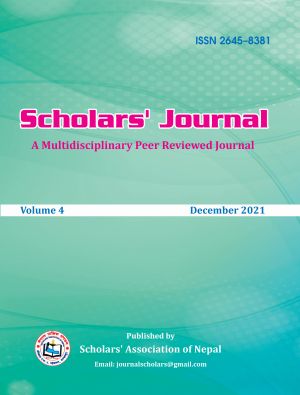Teacher Education Programme in Nepal and India: A Case of Four Selected Universities
DOI:
https://doi.org/10.3126/scholars.v4i1.42484Keywords:
Curriculum, higher education, comparison, teaching-learning methods, contentsAbstract
Universities with faculties of education run programmes to produce competent, trained, qualified and professional teachers for the quality education in the country. Taking this case into consideration, this study examined the curriculum of teacher education of four universities from Nepal and India in relation to objectives, contents, teaching-learning methods and assessment procedures. This is a comparative descriptive study based on document analysis. In Nepal, there is the provision of integrated four-year B.Ed. programme with one fifth of the professional courses while in India two-year B.Ed. with almost professional/pedagogical courses is in practice. The major objective of teacher education programme in both countries is to produce competent school teachers and educational professionals in the field. India has slightly stronger criteria (at least 50% marks at undergraduate) for enrollment at B.Ed. than in Nepal. Both countries have provisions of internal and external assessment to evaluate the students' achievement. There are more similar instructional techniques used in teacher education for teaching- learning while criteria used for interpretation of the results vary from institution to institution in both countries.
Downloads
Downloads
Published
How to Cite
Issue
Section
License
Copyright (c) 2021 Madan Singh Deupa

This work is licensed under a Creative Commons Attribution-NonCommercial 4.0 International License.
Copyright © The Authors

